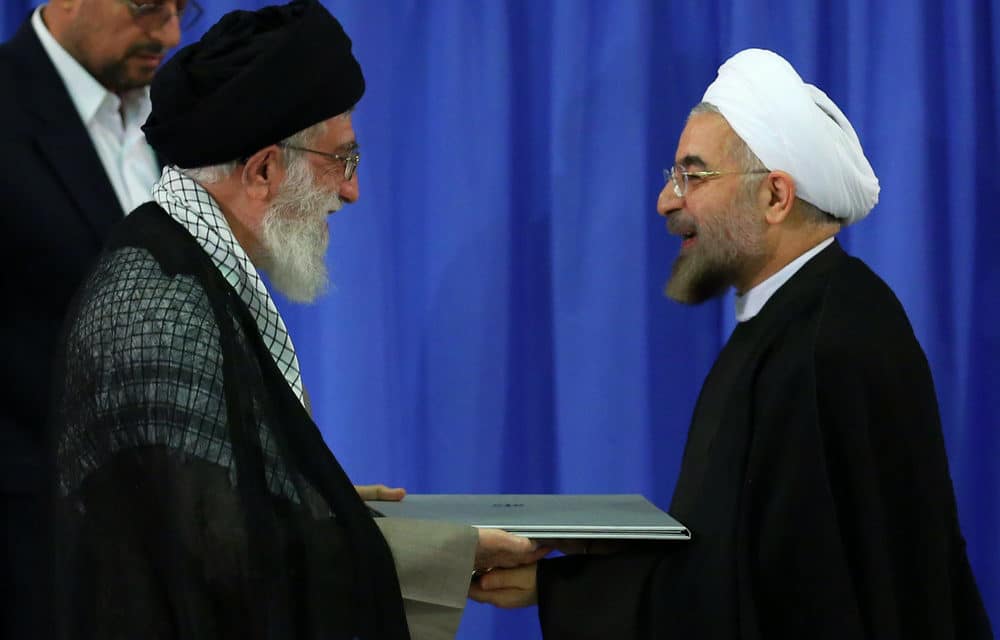Iran’s hardliners are celebrating a “change in [Hassan] Rouhani’s behavior” after the President adopted a tougher anti-US line this week, amid protests over economic conditions.
Rouhani has been under pressure with a collapsing Iranian currency, the threat of expanding US sanctions, and the demonstrations in markets in Tehran and other cities. Last weekend, the Supreme Leader’s military advisor, General Yahya Rahim Safavi, far from subtly warned that the President could be replaced: “Sometimes it seems the country would be managed better and in a more appropriate way without the government.”
The President responded on Wednesday with and a call for unity, denunciation of Washington, and a promise of a showdown with the Americans: “If there is hardship, we will endure it together and won’t give in, we will protect our historic dignity and defeat the United States in the fight of wills.”
Significantly, Rouhani also set aside his previous emphasis on negotiations with the European Union and its members to preserve the July 2015 nuclear deal, not only through political support but also through the trade and investment needed for Iran’s fragile economy.
Safavi signalled the Supreme Leader’s support of the changed Rouhani: “It is the duty of all of us to strive to coordinate and help the government and other branches to solve the economic problems and defuse the enemies’ plots regarding economic and psychological war.”
See Iran Daily, June 29: Supreme Leader’s Top Advisor Steps Back from Challenge to Government
Another senior advisor to the Supreme Leader, Gholam Ali Haddad Adel, said Rouhani’s comments were “positive”. Fars, the outlet of the Revolutionary Guards hailed the “call to stand against the arrogance of imperialism” while warning, ”We expect Rouhani not to return to his previous rhetoric.”
Politicians joined in. Former Tehran Mayor Mohammad-Baqer Qalibaf welcomed “the administration’s clear stance against the United States”. Hardliner Saeed Jalili, a former nuclear negotiator and critic of Rouhani’s policies, said he would offer advice to the Government.
But amid the reconcilation, there were few signs of action over Iran’s economic crisis, fed by Donald Trump’s withdrawal from the nuclear agreement and the US demand for all foreign companies to break links with Iran by November 4.
The Iranian currency, whose 20% fall in 48 hours spurred this week’s protests, remains at 83,000:1 vs. the US dollar — almost a 50% fall in value since January. There are no signs of major foreign companies lifting their suspension of business, including in Iran’s energy sector. Further pressure is being put on oil exports by OPEC’s decision to increase production, covering a drop in Iran’s sales — which analysts say could be a 40% fall — because of the US sanctions.
On Thursday, Rouhani’s chief of staff Mahmoud Vaezi held talks with the Qom Seminary, assuring them that the Government can deal with protests “but we need serious support from clerics”.
Mohammad Saeedi, in charge of the holy shrine in Qom, said the economic solution lay in taking lessons from Islamic history.

